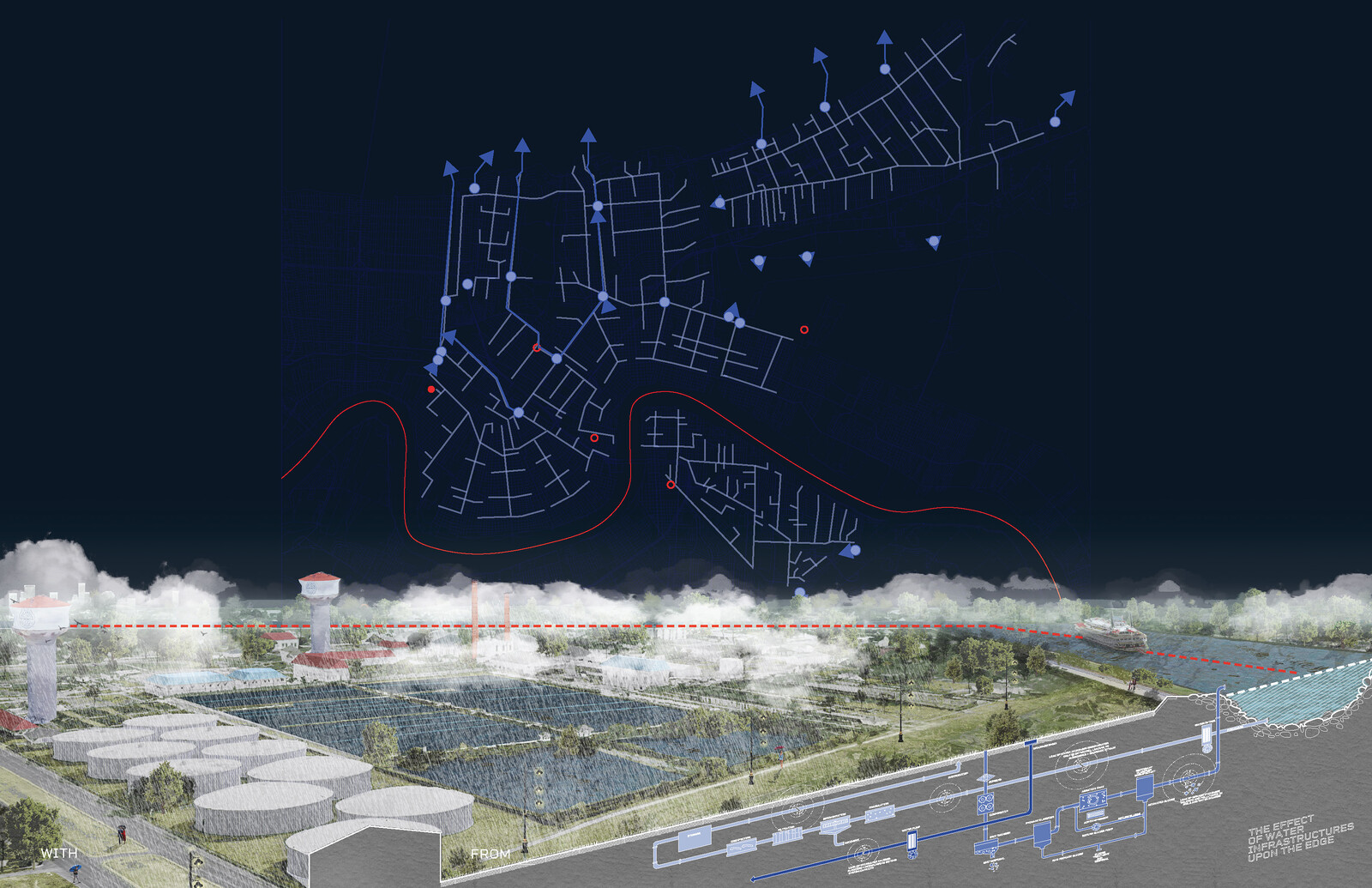Dual degree creates pathway to address climate challenges
Richardson Memorial Hall, 6823 St. Charles Ave.
New Orleans, LA 70118-5698
USA
T +1 504 865 5389
F +1 504 862 8798
architecture@tulane.edu
As climate change and extreme weather continue to impact communities around the world, the need for professionals skilled in the fields of landscape architecture, architecture, engineering, and planning is growing. In response, the Tulane School of Architecture (TuSA), in partnership with the Tulane School of Science and Engineering (SSE), has launched a new graduate dual degree—the Master of Landscape Architecture and Master of Science in River-Coastal Science and Engineering.
The new Landscape Architecture and Engineering program at Tulane University in New Orleans creates a pathway for students interested in pursuing a career in landscape architecture, informed by a strong background in science, and in engineering, with high design abilities focused on environmental and social issues.
“It’s going to be a unique degree—and it’s going to be a sought-after degree,” says TuSA’s Dean Iñaki Alday. “Everyone in the field who we talk to says, ‘Yes, that’s exactly what we need.’ We need landscape architects with engineering knowledge who are going to be effective technically, aesthetically, and ecologically. We need engineers who can design places for people and ecologies.”
The Landscape and Engineering program will begin recruiting its first cohort of graduate students in Summer 2024 with an application deadline of January 15, 2025.
The dual degree is designed to be completed in three and a half years (or two and a half years with advanced placement), with the program beginning in the summer term. It also includes collaboration with the Tulane SSE’s departments for Ecology & Evolutionary Biology and Earth & Environmental Sciences.
“Marrying landscape architecture with specialized engineering and science knowledge will enable graduates to deeply contribute to our region, and other coastal communities around the world,” says Tulane SSE Dean Kimberly Foster. “The opportunities should be limitless.”
The program will be co-directed by Margarita Jover, Landscape Architect, Architect and Professor of Architecture at TuSA, and Ehab Meselhe, Professor of River-Coastal Science and Engineering at SSE.
“The dual degree is a major step forward in our efforts to adequately prepare our students to tackle complex and interdisciplinary environmental challenges,” says Meselhe.
Jover says that this partnership between TuSA and SSE has the potential to make an enormous impact through its graduates.
“The newly created department of River-Coastal Science at SSE at Tulane gives the Master of Landscape Architecture and Engineering the opportunity to deepen the education on the water cycle, which is the backbone of all landscapes and human settlements,” says Jover.
Marie Dahleh, Associate Dean of EDI and Strategic Innovation at Tulane SSE and Senior Professor of Practice in Mathematics, speaks about the School of Science and Engineering’s role in educating future landscape architects and engineers through interdisciplinary study.
“Often when you’re trying to solve a problem, you exhaust the solutions in your own field. When you get to see across to another field, however, you can really innovate and come up with new solutions.”
Jover is equally passionate about the effect of bringing together SSE and TuSA—and their unique strengths—to educate the next generation of landscape architects and engineers.
“Urban designers, landscape architects, engineers and different professions working within the built environment must focus on ‘desired futures’ and ways to get there,” Jover says. “Melding design and the sciences in this interdisciplinary education will prepare future professionals to design ‘climate adaptation plans’ to support cities and towns nationwide.”
The formation of this innovative dual degree is made possible by Tulane’s relatively small size and its administrative structure, which is designed to encourage collaboration across disciplines, something Dean Alday says he’s proud to help exemplify through the development of a new Landscape + Engineering field.
“It’s very exciting to collaborate with another school and demonstrate what we always talk about at Tulane—working from one school to the other and being highly collaborative—and in doing so, creating a new field at the intersection,” Alday says. “There is where innovation will happen.”
For more information, visit here.



